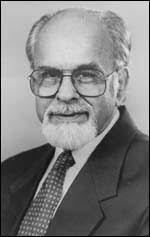
Indra Kumar Gujral

06.12.2023
Indra Kumar Gujral , Daily Current Affairs , RACE IAS : Best IAS coaching in Lucknow
|
For Prelims: About Inder Kumar Gujral,Important points,About Gujral Doctrine, For Mains paper :Gujral's 5 principles,Successes of Gujral Doctrine, Criticisms of Gujral Theory, About Club of Madrid |
Why in the news?
The 11th death anniversary of IK Gujral, the 12th Prime Minister of India, was observed on 30 November 2023.
Important points:
- Journalist Bhabani Sen Gupta coined the term "Gujral theory".
- IK Gujral is the only Prime Minister whose foreign policy is identified by his name.
About Inder Kumar Gujral:
- Inder Kumar Gujral was born in 1919.
- He died on 30 November 2012.
- Gujral was born in Jhelum in undivided Punjab and came to India after partition.
- He served as the 12th Prime Minister of India from April 1997 to March 1998.
- The submission of the Jain Commission report ultimately led to the fall of the IK Gujral led government.
- He was the second Prime Minister to be elected exclusively from the Rajya Sabha.
- Gujral had served as External Affairs Minister twice before becoming Prime Minister.
- Both their tenures were short – from December 5, 1989 to December 19, 1990 under VP Singh and from June 1, 1996 to April 21, 1997 under HD Deve Gowda.
- Apart from this, he was also the Minister of Information and Broadcasting in the cabinet led by Indira Gandhi during the Emergency.
- As External Affairs Minister (EAM), he propounded the 'Gujral Doctrine', which called for better relations with neighboring countries.
- He was also a member of Gujral Club of Madrid.
About Gujral Doctrine:
- During his second term as External Affairs Minister, Gujral outlined his approach towards India's neighbors, later known as the Gujral Doctrine.
- The Gujral Doctrine consisted of 5 principles, as stated by Gujral in a speech at Chatham House, London in 1996.
- The Gujral Doctrine was based on the understanding that India's size and population make it a major player in Southeast Asia by default, and that its position and prestige could be better strengthened by adopting a non-dominant attitude towards its smaller neighbors.
- It also stressed the importance of continuing dialogue and avoiding unnecessary provocation by commenting on the internal affairs of other countries.
- Gujral named countries from which India would not expect reciprocity and Pakistan was not included in this.
Gujral's 5 principles:
- First: This principle emphasized non-reciprocity, non-use of territory against each other, non-reciprocity in relations with neighbors like Nepal, Bangladesh, Bhutan, Maldives and Sri Lanka.
- Second: No South Asian country will allow its territory to be used against the interests of any other country in the region.
- Third: No one shall interfere in the internal affairs of others.
- Fourth: All South Asian countries should respect each other's territorial integrity and sovereignty.
- Fifth: They will resolve all their disputes through peaceful bilateral negotiations.
Successes of Gujral Doctrine:
Trust and Cooperation:
- Gujral's approach to foreign policy helped strengthen trust and cooperation in India's neighborhood. Among some of the concrete successes of this period, Manohar Parrikar Senior Fellow, Institute for Defense Studies and Analyses,
River water distribution:
- Gujral's policy of non-reciprocal adjustment led to the signing of a 30-year-old treaty between India and Bangladesh.
- December 12, 1996. In fact, the 1977 treaty on water sharing between India and Bangladesh (after extensions in 1982 and 1985) expired in 1988 and negotiations could not succeed due to inflexibility on both sides.
- He also secured Bhutanese consent to dig a canal from the river to increase the flow of water into the Ganges and also showed willingness to modify the controversial Mahakali Treaty with Nepal, which was well received in Nepal.
Approach with Pakistan:
- Gujral continued talks with Pakistan.
- During his tenure as Foreign Minister, India unilaterally eased travel restrictions, allowing Pakistani tourists to visit India and making it easier for Pakistani businessmen to travel to India.
Successor:
- Another major indicator of the success of the principle was that Gujral's successors as Prime Minister, from Atal Bihari Vajpayee to Manmohan Singh, continued to follow the same approach, despite holding different schools of thought.
Criticisms of Gujral Theory:
- Failing to persuade the foreign affairs bureaucracy to follow the principle wholeheartedly.
- Being too soft towards Pakistan, and leaving India vulnerable to future threats, including multiple terrorist attacks.
- The Gujral Doctrine did not effectively address the long-standing bilateral issues between India and its neighbors.
- People taking this principle argued that the emphasis on goodwill and non-reciprocity could be considered a weakness and could be exploited by adversaries.
About Club of Madrid:
- It was formed in 2001.
- Its headquarters are located in Madrid, Spain.
- It is an independent non-profit organization.
- It is designed to promote democracy and change in the international community.
- It consists of 126 regular members from 73 countries, including 7 Nobel Peace Prize laureates and 20 first female heads of state or government.
- The Club de Madrid is the world's largest forum for former heads of state and government.
Which includes 81 democratic former presidents and prime ministers from 57 different countries.